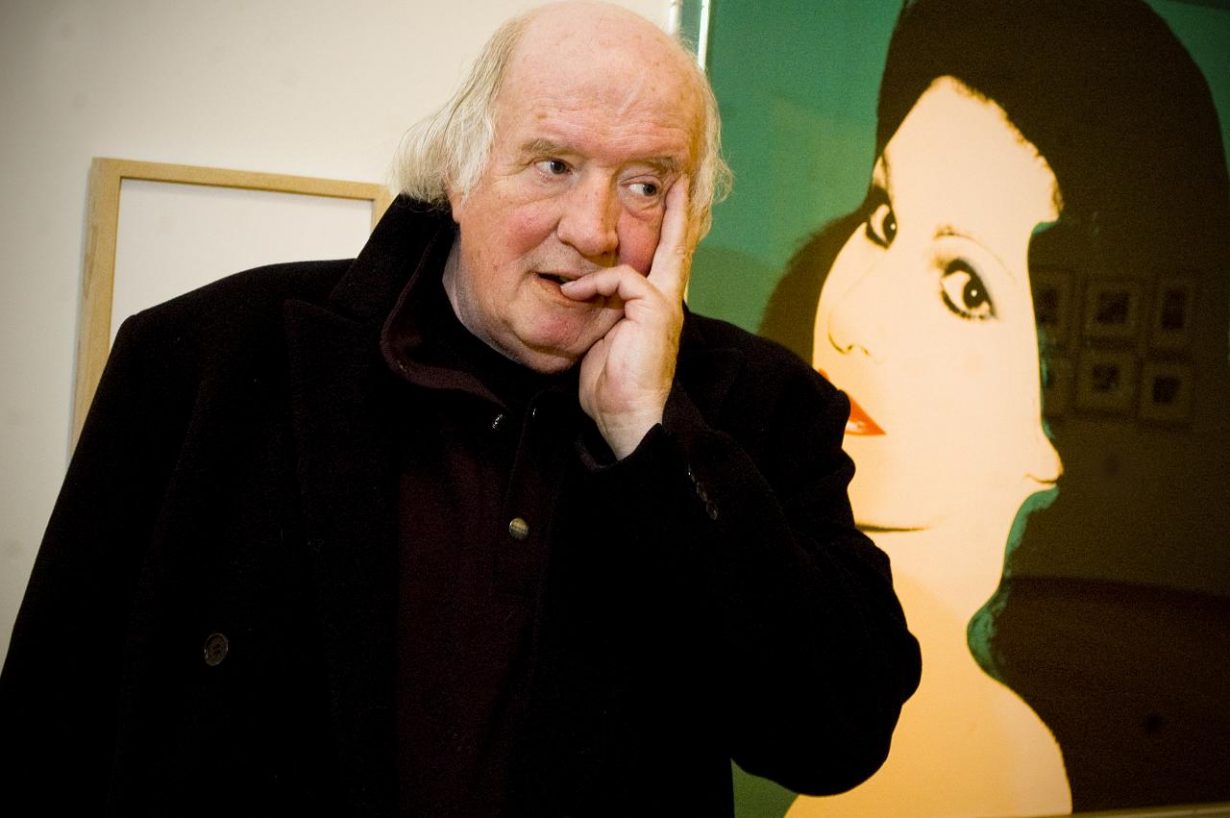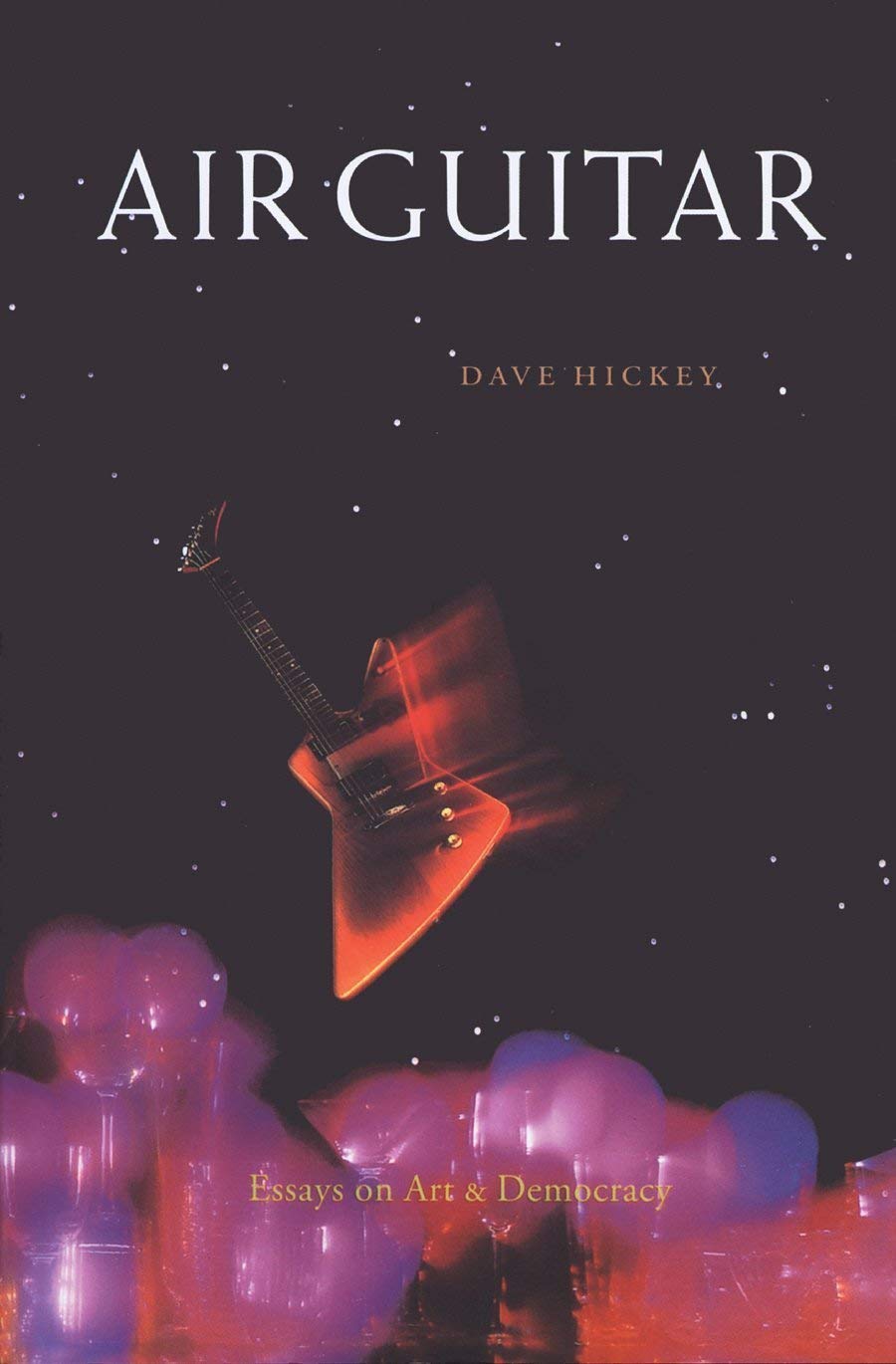The doggedly independent art critic argued for aesthetic pleasure, and for the artistry in worldly – ‘democratic’ in Hickey’s parlance – cultural forms, from basketball to Siegfried & Roy’s magic shows to the music of Chet Baker

One morning in 1997, I bought a copy of Dave Hickey’s newly published essay collection Air Guitar and, being a 24-year-old without gainful employment, I went home, slid into a midday bath, and started reading. If you’ll forgive the blunt baptismal metaphor, I emerged a different person, with a newfound sense of what I wanted to do with my life. Air Guitar is an argument for the artistry encoded in a range of relatively worldly – ‘democratic’ in Hickey’s parlance – cultural forms, from basketball to Siegfried & Roy’s magic shows to the music of Chet Baker. But, aside from the ebullient fence-trampling constituted by Hickey’s expansive vision of what deserves critical attention, it was how this unabashed stylist wrote about them, slangy and highfalutin and chic all at once, that seduced me: I wanted to do that. Well… good luck, kid. Rereading Hickey in the light of his recently announced death, as a writer I measure myself somewhere around his kneecaps.
But anyway, I don’t think I’m the only person who primarily took this from his writing – the suggestion that, yikes, art criticism might actually be interesting and fun to read and maybe even to write. In considering where Hickey’s legacy might lie, then, and revisiting what he focused on, it’s probably not the ideas of his breakout book, 1993’s The Invisible Dragon: Essays on Beauty, which argued for the latter quality in the face of what its author saw as the diminishing of optical pleasure by institutionally sanctioned, issue-driven and conceptual art. Given that we’re in another moment of urgent identitarian concern – a mirror, of sorts, to the early 1990s – Hickey’s apparent wish that artworks not founded on aesthetic sumptuousness might just quietly go away rings uneasily today. And, while we’re circling around white male privilege, this isn’t even to get into the trickier, thornier aspects of Hickey’s personality that emerged increasingly in his later years, before and after his ‘retirement’, when his eternal-outsider-cowboy schtick could seem like a license for (among other things) sexist pronouncements aimed to distance their maker from bourgeois decorum. In this regard, Hickey’s legacy might be as cautionary tale: steer clear of your own myth, your own ego, even if you’re a mere art critic.
Rather, I suspect Hickey’s importance lies on a more granular level, in that his interest in beauty played out, performatively, in his very sentences. Unless I’m very wrong, there’s been a revival of interest in literary, even belles-lettristic art writing over the last couple of decades, and Hickey is one of very few masters of the style. (Another is Peter Schjeldahl, who extraordinarily has outlived his compatriot despite being terminally ill.) Hickey wrote, with perpetual verve, to be read, to be hired again – and he suggested to others, like me, that they could get read too, with some effort. That’s an admirable effect to have on a discipline which is notorious for producing unreadable screeds; one hopes it lasts.

Where Hickey in his later years was right – and he repeatedly said that being right, as a critic, was what he was most interested in; see, for example, the essay ‘Baby Breakers’ in 2017’s autumnal compendium Perfect Wave – was identifying the artworld’s decline into boring financialised spectacle and drawing attention to it via his very vocal flounce. The artworld was now irredeemably stupid, he said a decade ago, and that’s why he was getting out, though not before tabulating its stupidities. (Hickey’s gossipy dispatches from art fairs are required reading.) Where else he was right, it seems to me – though it was the cause of stumbles, too – was in being a doggedly independent thinker. You might not agree with the thoughts; you might not always understand the thoughts (reading Hickey can sometimes occasion a combination of exhilaration in his language with uncertainty of what he’s driving at); but you have to respect that here’s a writer with no interest in putting his own light spin on received wisdom. Would that this, too, serves as a lasting example.
In 1998, I was invited back to my old art school to give a lecture, my first. The main thing I remember is telling the assembled students how to steal books from the college library – rip out that metal strip and you’re good, I said, while the tutors mimed throat-slitting from the front row – and also that they should read this guy Dave Hickey. In retrospect, the former statement seems informed, in a jejune way, by the mien of the latter writer. I was something of a Hickey stan at that point, getting hold of the great West Coast art magazine Art Issues to read the columns that didn’t make it into Air Guitar, and even tracking down his two volumes of short stories. I saw him talk in person once, at London’s ICA. This is a long time back now, pre-retirement certainly, and I remember worrying that the honoured guest wouldn’t make it through his lecture, so visibly breathless was he. Instead, he held on for years to come – continuing, if not to write much, to be a gadfly on stages – though the final ones were spent, lion-in-winter style, in the melancholy, illness-enforced seclusion detailed in Daniel Oppenheimer’s admiring but even-handed critical biography Far from Respectable: Dave Hickey and his Art (2021). For most of those years I had Hickey’s email address. I never used it, and now somewhat wish I had. Nobody dislikes it when you thank them, and I had a fair amount to thank him for.